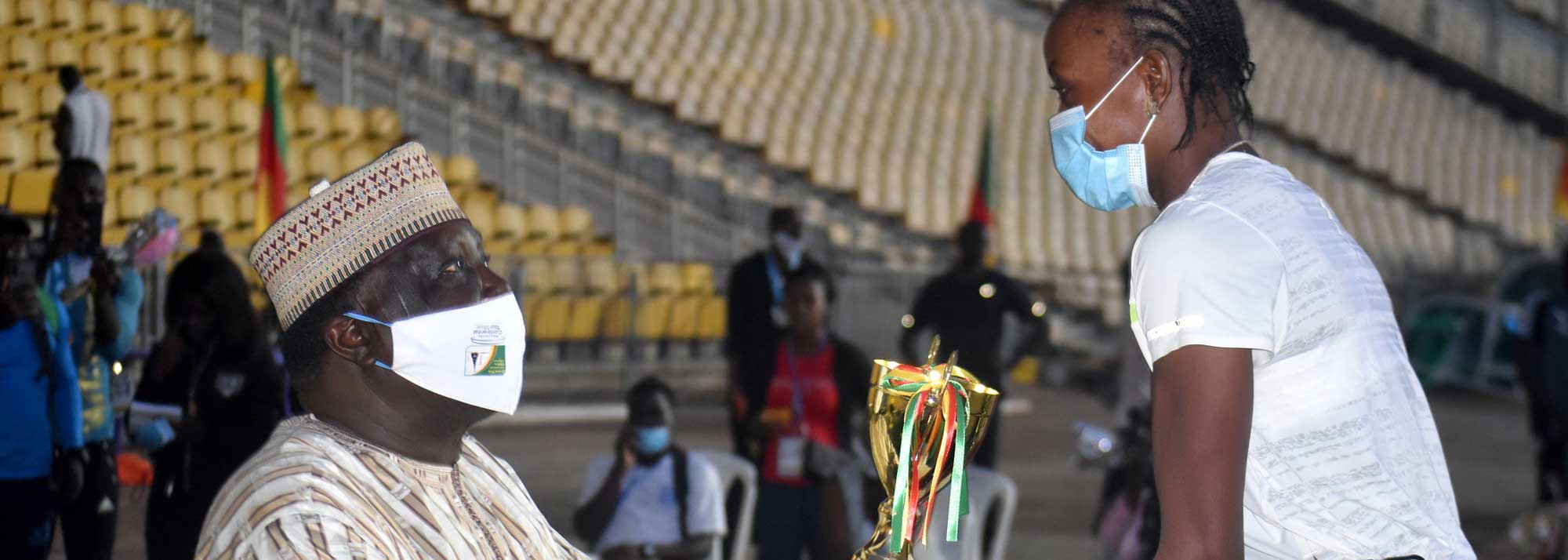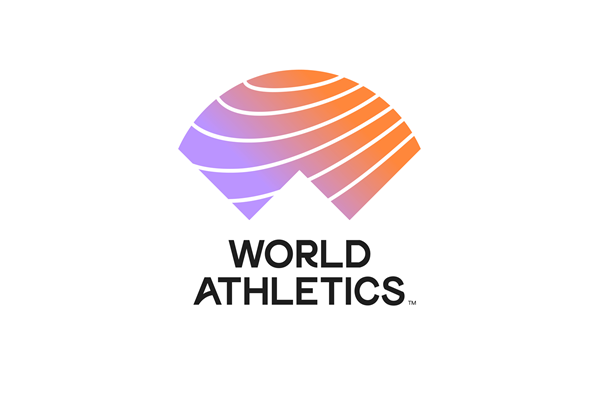Interview by Mohammed Benchrif
After 10 days of competition (30 July - 8 August), the athletes from the African continent left the XXXII Olympic Games in Tokyo with a harvest of 23 medals (8 gold, 7 silver and 8 bronze). Eight nations of the continent contributed to this achievement, namely Kenya, Uganda, Ethiopia, Morocco, Namibia, Nigeria, Burkina Faso and Botswana.
In a very difficult context due to the pandemic, African athletes have once again demonstrated the excellent health of African athletics, a source of satisfaction for the President of the Confederation of African Athletics, Mr Hamad Kalkaba Malboum, who kindly granted us this exclusive interview.
President, are you satisfied with the results of the African participants in the athletics competitions of the Tokyo Olympic Games?
It has to be said that our participation in the Olympic Games took place in an extremely difficult context for the African continent. In fact, Africa was hit hard by the pandemic in the field of sport. Since the outbreak of the coronavirus pandemic, Africa was presented as the continent where the disaster of the pandemic would take place. We could not organise our competitions on the continent in 2020 and 2021. We postponed twice the African championships planned in Algeria, which for scientific reasons did not allow the organisation of these championships. We tried to relocate to Nigeria to give African athletes the opportunity to compete. But for the same reasons, we could not host the championships in this country. Therefore, we spent the whole period without any competition, while the athletics competitions were held on the other continents. Obviously, with the closure of the borders, we had to go through a very difficult time. Nevertheless, some of our athletes went to secure their qualification elsewhere, more precisely in Europe.
The results we achieved in Tokyo show that our athletes have great potential, and we can be satisfied with what we have achieved. At the Tokyo Olympics, athletics was the sport in which Africa won the most medals. Moreover, some victories have left a lasting impression such as the three medals in the marathon, the two triples in the 10,000m and in the 3,000m steeplechase, the victory of Morocco in this event, the return of Namibia, which had been quiet since the time of Frankie Fredericks, and Botswana which is still on the rise.
In any case, we can only rejoice at the results of our athletes, not forgetting that naturalised African athletes have won medals for other countries in Europe, America and especially for Canada. Naturalised African athletes from the United States, Canada and Australia have become our rivals in the 800m, 1500m, middle distance and long distance, which were our signature events. Nevertheless, I am convinced that Africa remains an important cradle of athletics worldwide.
In a few days, Nairobi will host the World U20 Championships. What impact will these championships have on African athletics?
These championships are the result of a long process. During the 2017 World Championships in London, it was decided that Africa should be able to host an edition of the Senior World Championships by 2025. For this to happen, we had to go through a number of steps to learn and, on the other hand, convince our partners in global athletics. Among the countries I mentioned, some are capable of hosting these World Championships. Kenya has prepared well for this event by organising intermediate competitions, starting with the U18 World Championships and in a few days the U20 World Championships in Nairobi (from 17 to 22 August). Kenya is a candidate to host the Senior World Championships in 2025. I see the U20 World Championships as an important test to gain the confidence of the international community.
Three years ago, you initiated the second plan for the development of African athletics over 10 years. Can we say today that the lights are green and that the CAA has achieved its milestones?
Certainly, the performance indicators of these objectives are good. Unfortunately, we have lost two years (2020 and 2021) marked by inactivity on the continental level because of the pandemic. That is why we cannot say that our milestones have been achieved. Given our results and the rise of new countries, we believe that African athletics is on the right track. However, we cannot make an evaluation because we could not organise our African Championships. On the other hand, we have awarded the organisation of the next edition of these championships in 2022 to Mauritius which has expressed its interest at the highest level of the State and the Mauritian government has expressed its full support to the organisation of this competition (June-July). Thus, we will be able to make our evaluation and offer the opportunity to our athletes to qualify in large numbers for the next World Championships scheduled for August 2022 in Eugene (USA). In short, we cannot currently evaluate the results of this plan that we have not been able to execute beyond our control. For a 10-year plan, I think that we can make a progress evaluation after five years. So we have another two years ahead of us.
The expected goal is to allow each African country to participate in the World Championships and the Olympic Games with qualified athletes and not with an invitation, taking into account the spirit of universality of the games.
I understand that the current situation does not allow for an objective evaluation of this strategy, but I am convinced that after Covid-19, things will return to normal and we will be able to achieve the objectives.
Among the goals of this plan, do you have any other ambitions for the coming years?
In my opinion, we have to look at things on two levels. In terms of development, World Athletics is showing its willingness to support athletics. The African continent is the only one that benefits from a consistent grant envelope compared to other continents like Asia, South America and Oceania. However, given our potential, performances and contribution, we have the right to expect more than what has been done so far. We need to ensure a better reconversion of athletes, to associate training with school and university, to help athletes learn a trade after their career, etc. In this respect, we expect a lot from World Athletics. For the rest, we have to convince our states. A medal at the Olympic Games, even a bronze one, gives satisfaction to a whole nation and to the country’s youth. The practice of athletics is not expensive. I think that African states must support this sport, which is a source of pride and which gives them great influence.
Africa is the only continent where athletics is almost permanently active throughout the year. Is it rewarded for its contribution to the development and influence of athletics worldwide?
Africans should be made aware that athletics is the number one sport in Africa and at the Olympic Games. In addition to the Olympic Games and the World Championships, there are intermediate competitions such as the All-Africa Games, the Mediterranean Games, the Francophonie Games and the Commonwealth Games where Africans shine in athletics. African states must support athletics and African youth must be more interested in this sport. When an athlete becomes an Olympic medallist or a world champion, his standard of living and his social situation change. He/she becomes an icon and a hero in his/her country, which rewards him/her and attracts sponsors who are interested in his/her performances.
In conclusion, this sport must be taken seriously and practised, if chosen, with determination, perseverance and commitment with the aim of reaching the highest possible level in a career.
SOUS FORME D’INTER (FENETRES)
- Athletics was the sport in which Africa won the most medals.
- The U20 World Championships as an important test to gain the confidence of the international community
- Given our results and the rise of new countries, we believe that African athletics is on the right track.
- The African continent is the only one that benefits from a consistent grant envelope compared to other continents
-Athletics is the number one sport in Africa and at the Olympic Games.









